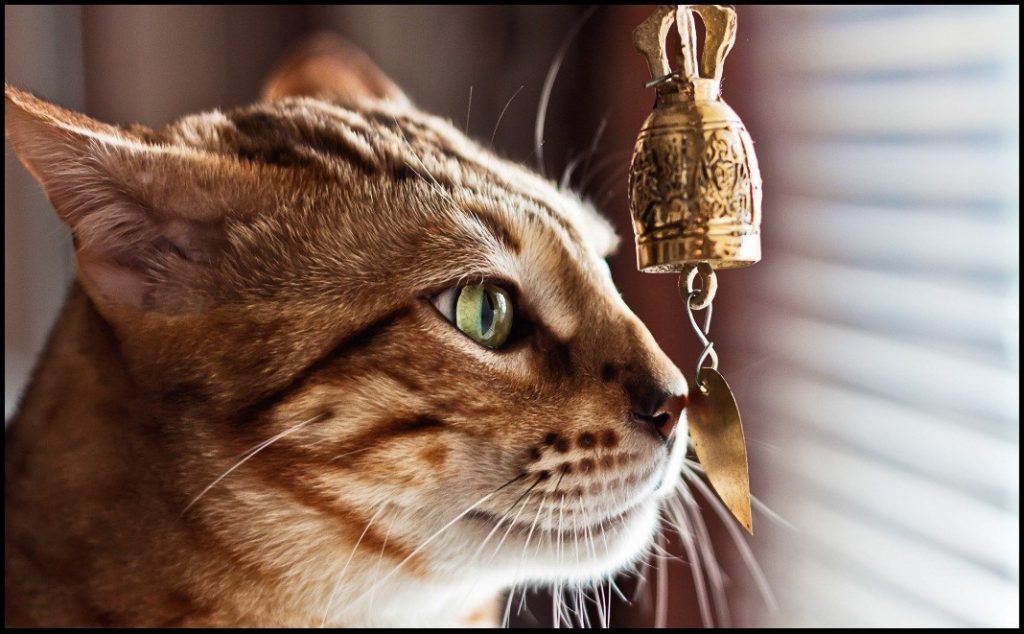CHAPTERS
Navigate to chapter
► Chapter 1: Introduction
► Chapter 2: Bengal Cats in Focus
► Chapter 3: Bengal Cat Requirements
► Chapter 4: Tips in Buying Bengal Cats
► Chapter 5: Maintenance for Bengal Cats
► Chapter 6: Nutritional Needs of Bengal Cats
► Chapter 7: Caring Guidelines for Bengal Cats
► Chapter 8: Breeding Your Bengal Cats
► Chapter 9: Keeping Your Cat Healthy
Chapter 3: Bengal Cat Requirements

Are you now thinking of getting a Bengal cat? Fantastic! After knowing what they are, their behaviors, and how to deal with them, it’s time to give you practical tips on what you need to know before buying one.
In this chapter, you will get a whole lot of information on its pros and cons, its average associated costs as well as the licensing you need so that you will be well on your way to becoming a legitimate Bengal pet owner – should you decide to be one! It’s up to you! Read on!
Pros
- Personality: They are very devoted, very intelligent, playful and energetic
- Appearance: Has unique coating and markings,
smooth and silky skin, and very pleasing to the eyes.
- Behavior: Gets along with other cats or pets especially dogs, if properly introduced.
- Impact on Humans: Loves to play with children and people in general, active and loving. A truly great companion.
- Health: Very athletic compare to other cats and not prone to diseases and health issues.
Cons
- Attitude: Naturally naughty and curious which often leads into trouble. Sometimes can be too talkative and hyper.
- Behavior: Does not do well in isolation, needs lots of attention.
- Cost: Quite expensive compare to other cat breeds, although purchase price may vary depending on the breeder.
- Maintenance: Generally low maintenance but things such as toys and food may need to always be replaced or replenished more than the average cat.
If you are planning to acquire a Bengal as your pet, there are certain restrictions and regulations that you need to be aware of. Licensing requirements for pets varies in different countries, regions, and states.
In the United States there are no federal requirements for licensing either cats or dogs – these rules are regulated at the state level. While it is true that most states do not have a mandatory requirement for people to license their cats, it is always a good idea to do so because it will not only serve as protection for your pet but also for you.
Here are some things you need to know regarding the acquirement of Bengal cats both in United States and in Great Britain.
United States Licensing for Cats
The average annual license cost is $10.00. Cat licenses for senior citizens are $5.00. Costs may vary depending on state.
When you acquire license for your cat you will be given a cat number that can then be linked to your contact information. If your cat gets lost and someone finds it, its license can be used to track you down so that they’ll be able to return to you your pet. Of course, this information will only be available if your cat wears a collar with an ID tag.
It is also ideal that four month old cats and up as well as indoor cats should still have a license because it is required by municipal law. Even those cats that never leave the house have a way of getting out through accidentally open doors, gates, or windows. Also, a natural disaster like an earthquake or fire may cause your pet to flee the safety of your property; having your Bengal cat licensed, will help reunite your lost pet with you.
If you want to apply for a cat license, you can search the website of your municipal or state government online. You will be able to download the application form and just follow the procedure. After filling up the form, you can mail it to their office together with a fee, in some states there is currently no fee for a cat license so make sure to check first and find out how much it cost.
Documentary requirements must be submitted before permanently getting a pet license. They are as follows:
- Residents must include the current rabies certificate,
- Proof of spay and neuter, and microchip (if applicable) to make the license current.
In most states, these are the main documents needed to get a cat license. There might be additional requirements that need to be submitted in other states. The license will be considered temporary status until all documents are received.
If you don’t want to put a collar on your cat a good alternative option is to have it micro-chipped. A microchip serves the same function but they can be embedded under your cat’s skin so that it won’t be lost. The procedure for having your cat micro-chipped is very quick and painless.
Great Britain Licensing for Cats
In Great Britain, licensing requirements for pets are a little different than they are in the United States. There are no overarching licensing requirements for cats in the Great Britain but you will need to get a special permit if you plan to travel with your cat into or out of the country.
Your cat may also be subject to a quarantine period to make sure he isn’t carrying a disease like rabies – rabies has been eradicated from Great Britain through safety measures like these so it is important to maintain them.
Bengal Cats Behavior with Children and Pets
Generally, Bengal cats are lively and very interactive, that is why it’s a perfect choice for families with children. There is actually no general rule when introducing your pet with other types of animals, sometimes they’ll get along, sometimes they won’t.
Fortunately, Bengal cats are such friendly creatures, they tend to get along with other cat species as well as other pets like dogs. You can expect your cat to accept others but do so with caution so that they could easily warm up with their new animal friends.
Bengal cats have a reputation for being witty yet gentle at the same time. They love to hang out and spend time playing around with people which make them suitable as family pets. As a caution, you should always supervise kids to make sure they don’t annoy the cat.
How Many Bengal Cats Should You Keep?

Bengals don’t do well in isolation, yes they are generally low maintenance and kind-hearted at the same time but they still need lots of attention and interaction, if you work a full-time job or if you spend a lot of time away from home, then it is highly recommended that you get a companion for your Bengal cat, like a dog or perhaps another cat. As stated earlier, they can get along with other cats and can also become friends with dogs and other household pets if they are properly introduced.
Ideally one or two Bengal cats are fine; just make sure that before you get another one, you can provide for the needs of both cats.

Owning Bengal cats doesn’t come cheap! Generally, these cats are low maintenance but you still need to provide supplies and be able to cover the expenses in order to maintain a healthy lifestyle and environment for your pet.
These things will definitely add up to your daily budget, and the cost will vary depending on where you buy it; the brand of the accessories, the nutrients included in its food and the time being.
If you want to seriously own a Bengal cat as a pet you should be able to cover the necessary costs it entails.
In this section you will receive an overview of the expenses associated with purchasing and keeping Bengal’s as pets such as food and treats, grooming and cleaning supplies, toys, veterinary care, and other costs so that you can determine whether you are able to provide for such a cat or not.
The initial expenses associated with keeping Bengal’s as pets include the cost of the cat itself as well as the its bed, accessories, toys, initial vaccinations, micro- chipping or licensing, spay/neuter surgery as well as grooming supplies.
You will find an overview of these costs below as well as the estimated total expense for keeping Bengal cats:
Purchase Price: starts at $650 – $2,000
The average price for a Bengal cat ranges from $650 – $2,000, while Bengal kittens costs anywhere from $450 – $1,000. It can become more expensive, especially if it is from a reputable breeder or sometimes it depends on the cat’s age.
Continue Reading…
Want to read the entire thing?

